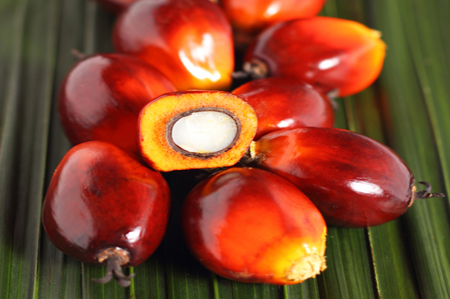Palm climbs to 17-month high on drop in stocks
Category: Oilseeds
 (Reuters) – Malaysian palm oil futures rose to their highest level since mid-September 2012 on Monday after an industry report showed that stocks in the world’s No 2 producer fell to an eight-month low as dry weather hindered output.
(Reuters) – Malaysian palm oil futures rose to their highest level since mid-September 2012 on Monday after an industry report showed that stocks in the world’s No 2 producer fell to an eight-month low as dry weather hindered output.
Industry regulator the Malaysian Palm Oil Board on Monday reported that Malaysia’s February palm oil stocks dropped to 1.66 million tonnes, their lowest level since June, from 1.94 million tonnes the month before.
Market participants had estimated stocks would fall to 1.79 million tonnes.
Dry and hazy conditions in Malaysia and top producer Indonesia have interrupted growth of fresh fruit bunches, curbing yields and squeezing palm oil supplies.
“The market is reacting to the stocks figures,” a trader with a foreign commodities brokerage said. “In just one month, our stocks were reduced by about 300,000 tonnes. That is quite frightening.”
By Monday’s close, the benchmark May contract on the Bursa Malaysia Derivatives Exchange had risen 0.7 percent to 2,905 ringgit ($885) per tonne. Prices earlier hit 2,910 ringgit, their highest since Sept. 14, 2012.
Total traded volume amounted to 31,185 lots of 25 tonnes, slightly below the average 35,000 lots.
Technicals were a little bearish. Malaysian palm oil could have peaked at the March 7 high of 2,896 ringgit per tonne and may test a support at 2,829 ringgit, Reuters market analyst Wang Tao said.
Traders said inventories were poised to shrink further as the dry spell in Southeast Asia dragged on.
“We don’t have much rain. Production is expected to be low. March stocks will likely be reduced further,” the trader added.
“If the weather persists in being as hot as this, and the El Nino effect comes in, it wouldn’t be a surprise if prices head to 3,500 ringgit.”
The El Nino weather pattern usually results in below-average rainfall in the main palm oil producing countries, cutting yields and pushing up global prices.
Lacklustre demand, however, capped the gain in prices.
Cargo surveyor Intertek Testing Services (ITS) reported that Malaysian palm oil exports in the first 10 days of March fell 5 percent to 293,879 tonnes as top buyers and price-sensitive India and China cut back purchases.
Another cargo surveyor, Societe Generale de Surveillance, showed that exports for the same period fell 3.7 percent.
In other markets, crude oil slipped below $108 a barrel on Monday as an unexpected fall in China’s exports stoked fears of a slowdown in the world’s No. 2 economy, though political tensions in Ukraine and Libya limited the decline.
In other competing vegetable oil markets, In other competing vegetable oil markets, the U.S. soyoil contract for May rose 0.3 percent in late Asian trade, while the most active May soybean oil contract on the Dalian Commodities Exchange dropped 0.3 percent.




